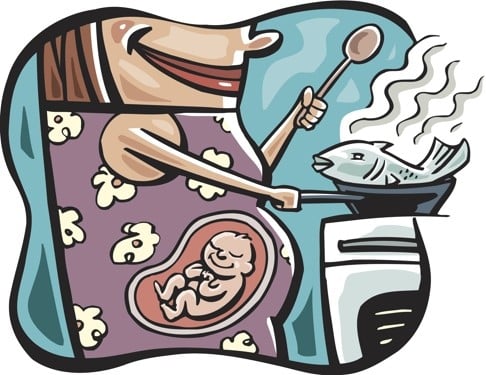Sleep deprivation linked to diabetes, but weekend lie-ins lower risk, study finds
Also in the news: water dispensers in school cafeterias can help students control weight, and how mums-to-be can help child brain development by eating fish
PUBLISHED : Wednesday, 20 January, 2016, 9:01pm
UPDATED : Wednesday, 20 January, 2016, 10:33pm
Jeanette Wang
[email protected]

Weekend catch-up sleep can counteract deleterious effects of short-term sleep restriction during the week. Photo: Corbis
Two consecutive nights of extended sleep – what we typically do on a weekend – appears to counteract the increased risk of diabetes associated with short-term sleep restriction during the work week. In a new study published in the journal Diabetes Care, researchers from the University of Chicago recruited 19 lean, healthy young men and fed them a calorie-controlled diet while observing them in a sleep lab. On one occasion, the men were allowed to sleep normally, spending 8.5 hours in bed for four nights. On another occasion, they were first sleep deprived, sleeping an average of 4.3 hours per night for four straight nights. Subsequently, they were allowed two nights of extended sleep, during which they averaged 9.7 hours of sleep. The researchers then determined the subjects’ insulin sensitivity – the ability of insulin to regulate blood sugars – and the disposition index, a predictor of diabetes risk. After four nights of sleep restriction, the subjects’ insulin sensitivity decreased by 23 per cent and diabetes risk increased by 16 per cent. Both of these returned to normal levels after two nights of extended sleep. The impact of catch-up sleep on other adverse health outcomes linked with insufficient sleep, however, remains to be seen. Poor sleep has also been linked with eating more (especially sweets and high-fat foods), high blood pressure and cognitive problems.

Making water more available in schools through self-serve water dispensers may positively impact students’ weight.
Water dispensers in public schools associated with student weight loss
Simply making water more available in schools through self-serve water dispensers may have positive impacts on students’ overall health, in particular weight. A five-year study that involved more than one million students in 1,227 elementary and middle publics schools across New York found that the introduction of these “water jets” in cafeterias resulted in small – but statistically significant – declines in students’ weight. In 2009, New York’s Department of Health and Mental Hygiene and Department of Education began introducing these dispensers, called water jets, into schools. Each water jet costs about US$1,000. About 40 per cent of schools received a water jet over the course of the study period. The study, which appears online in JAMA Pediatrics, found that students at schools that had water jets for at least three months saw a reduction in standardised body mass index of 0.025 for boys and 0.022 for girls, compared to students at schools without water jets. Adoption of water jets also was associated with a 0.9 percentage point reduction in the likelihood of being overweight for boys and a 0.6 percentage point reduction for girls. In addition, milk purchases dropped at water jet schools by about 12 284ml cartons per student per year. A separate 2015 study found that water consumption increased threefold just three months after schools introduced water jets. The researchers conclude that easy access to water during lunch may lead kids to substitute it for caloric beverages such as chocolate milk, juice and soft drinks.

Women who eat oily fish such as salmon, sardines and mackerel while pregnant can assist in a child’s brain development. Photo: Corbis
Why fish intake by pregnant women improves the growth of a child’s brain
Here’s why mums-to-be should eat fish during pregnancy: a balanced intake of lipids, especially fatty acids such as omega-6 and omega-3, is necessary for the normal brain formation of the unborn baby, according to Tohoku University researchers. In their study, female mice that were fed an omega-6-rich/omega-3-poor diet gave birth to offspring with a smaller brain and which showed abnormal emotional behaviour in adulthood. According to lead researcher Professor Noriko Osumi, the brain abnormality found in the offspring of mice used in the study, was caused by a premature ageing of fetal neural stem cells that produce brain cells. The premature ageing was promoted by an imbalance of oxides of omega-6 and omega-3 fatty acids. The offspring also showed higher anxiety levels, even though they were raised on nutritionally optimised diets from an early lactation period. Fish, especially oily fish such as salmon, sardines and mackerel, are rich in omega-3.

Women who eat fish while pregnant can improve the growth of a child’s brain. Photo: Corbis
